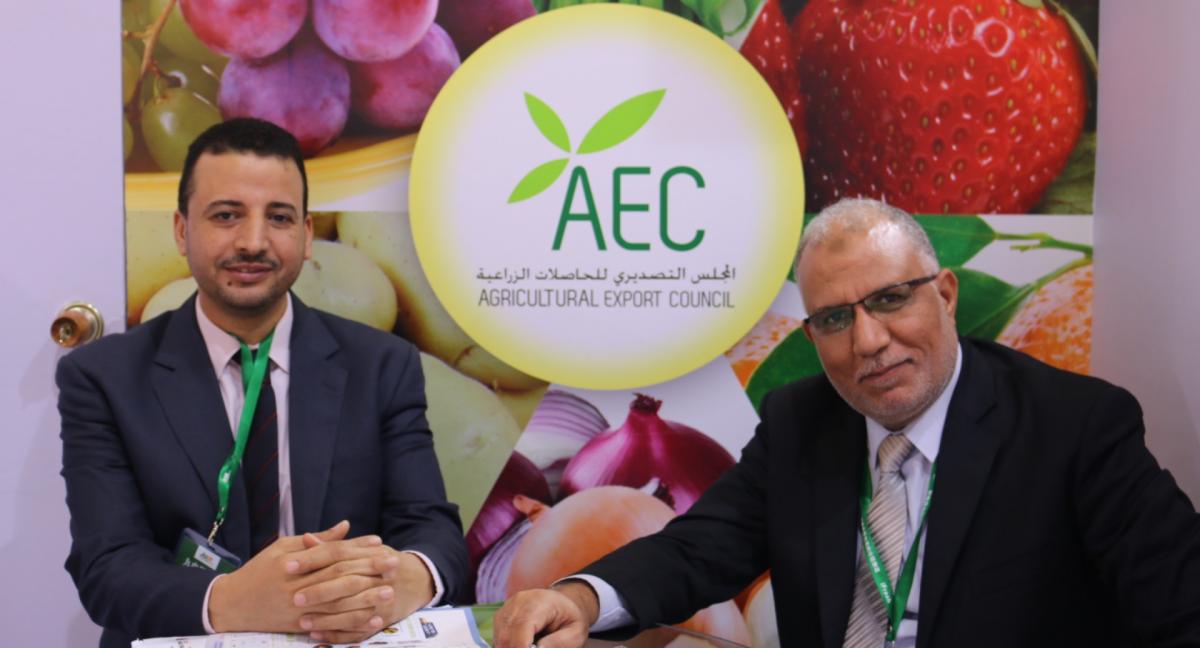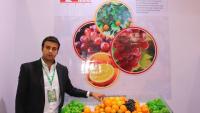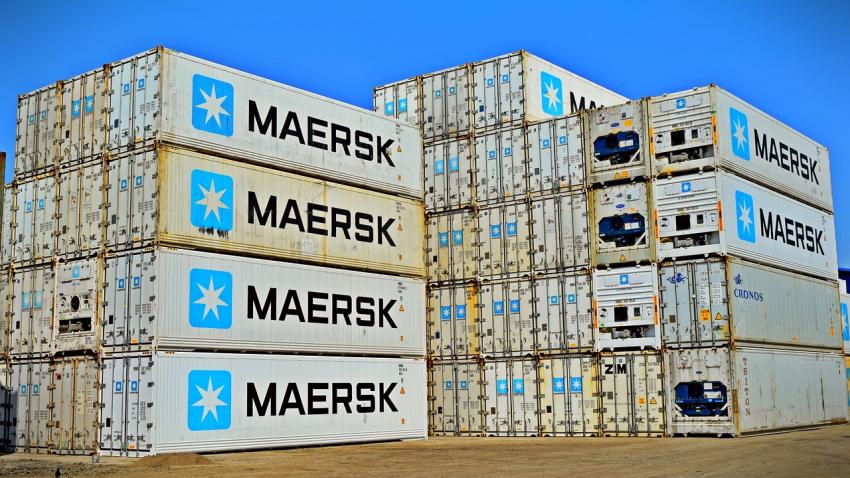You are here
Back to topEgyptian Fruit Exports Gain Momentum in China

Egypt’s Agricultural Export Council executive director Hany Hussein and the Egyptian Expo and Convention Authority representative Salama Said at iFresh China 2016
Photo: Produce Report
Exports of Egyptian citrus to China have grown to 90 times what they were in 2007, according to the Executive Director of Egypt’s Agricultural Export Council Hany Hussein in remarks to Produce Report. In 2007, when Egyptian citrus entered China’s market, export volumes were merely 400 tons; this amount has increased by 8,900% to 36,000 tons for the 2015-2016 season. Chinese consumers have exhibited a growing demand for Egyptian fruit, laying a solid foundation for further expansion of Egyptian fruit exports such as grapes, which gained market access in China earlier this year.
Egypt exports a wide variety of citrus fruits to China, including oranges, mandarins, grapefruits, and lemons. Oranges make up the majority of these exports, totaling 34,000 tons, or over 94% of all citrus exports, for the 2015-2016 season. Following oranges, grapefruit is the second-most exported fruit; 1,300 tons of grapefruits were shipped to China last season. Mr. Hussein noted that in China, Valencia oranges dominate whereas navel oranges are more popular in Arab countries, the primary destination for the majority of Egyptian fruit exports.
Egypt is the world’s largest exporter of citrus, exporting nearly 1.5 million tons in the 2015-2016 season. “We have the potential to achieve 2 million tons in exports in the near future. At the present, we are negotiating market access with countries in Southeast Asia, such as Thailand, the Philippines, and Vietnam, also with Japan which will bring us new opportunities,” commented Mr. Hussein. At the moment, however, the best prospects for Egypt’s exports lie in China, where Egyptian citrus is considered excellent value for money and is very competitive on the imported citrus market. In fact, with 36,000 tons exported last season alone, Egypt is closing in on China’s biggest citrus supplier, South Africa, which exported nearly 47,000 tons of citrus to China in 2015.
Up until the autumn of 2016, the only fruit allowed in China from Egypt was citrus. However, the two countries signed a protocol regarding Egyptian grape exports to China just this month. Even though China itself is the world’s largest producer of grapes, with an output of 12.6 million tons in 2015, and regardless of the fact that China’s grape season is very similar to Egypt’s (July-October in China, May-September in Egypt), Hany Hussein is optimistic about the future of his country’s grapes in China. “Egyptian grapes differ from Chinese grapes in both variety and flavour…we have Sugraone, Prime Seedless, and Crimson Seedless varieties, which are very popular in international markets.”
Nivex Farms aims to become one of Egypt’s pioneers in exporting grapes to China. Emad Yacoub, managing partner of Nivex Farms, expressed a similarly-positive attitude about the potential for Egyptian grapes in China. “We not only grow common, public varieties, but with the help of breeding companies, Nivex Farms also develops and produces new cultivars, ensuring product diversity.” In Mr. Yacoub’s opinion, the market in China is so immense that Egyptian grapes will surely be able to find their own niche in it.
Egyptian economists view China as a country with a colossal and ever-increasing demand for fresh produce from overseas. As a result, Egypt has ambitious plans to expand exports to China beyond just citrus and grapes. Hany Hussein indicated to Produce Report that after acquiring permission to export grapes, Egypt will start negotiations on allowing other crops to be exported to China, specifically strawberries, mangoes, beans, potatoes, and onions.

















Add new comment